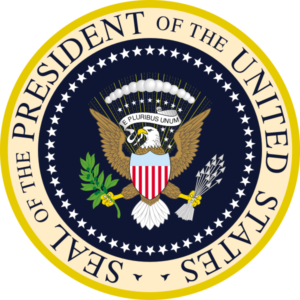Ward Law LLC is dedicated to keeping our clients informed about all things COVID-19 related. Our business is to ensure that you have all the information you need to keep your business going. In that regard, please read below for small business exemptions from the FFCRA.
Small Business Exemption from the FFCRA
Recently, the Families First Coronavirus Relief Act (“FFCRA”) was passed to provide emergency paid leave to certain qualified employees. It does so by creating 2 weeks of emergency leave for employees who meet qualifying circumstances (“EPSL”), while it also creates paid leave to qualifying employees by expanding the Family and Medical Leave Act (“FMLA”). The compensation paid to employees on leave is to be paid by the employer, although they receive a tax credit to reimburse them for those payments. As written in prior posts, the FFCRA does allow for exemptions to certain small businesses with fewer than 50 employees. The law, as written, gives very little detail on the exemption, other than to say that there may be an exemption available to the small businesses if compliance with the paid leave would jeopardize the business as an ongoing concern. In other words, if paying employees on leave under the FFCRA would put the employer out of business, they may qualify. The Department of Labor was instructed to issue guidelines to further map out the small business exemption, and they have now issued some clarification for the exemption.
Of paramount importance, the Department of Labor (“DOL”) clarified that the small business exemption is available for only one of the employee qualifying reasons listed in the FFCRA. The FFCRA lists several different reasons that an employee is eligible for EPSL, and just one reason an employee may qualify for expanded FMLA leave. The DOL indicates that a small business exemption to the FFCRA is only available when the employee is on leave because a child’s school or care provider is closed or unavailable. That means that a small business is NOT eligible for an exemption, no matter the effect on business, as it relates to compensation of employees who are on leave due to quarantines or are seeking COVID-19 care/diagnosis.
Under the DOL guidance, an “authorized officer” of the employer is to determine whether they qualify for and can seek an exemption from the FFCRA expanded leave provisions. Unfortunately, there is nothing defining who may be or is an “authorized officer.” Nevertheless, as noted above, the organization must have less than 50 employees, and the exemption applies only toward paid leave for employees out due to closure or unavailability of a child’s school or care provider. Whether compliance with the FFCRA would jeopardize the business as an ongoing concern is the next question. The DOL places this requirement into three categories:
- providing leave would result in the small business’ expenses and financial obligations exceeding available business revenues and cause the employer to cease operating at minimal capacity;
- the absence of the employee or employees requesting such leave would entail a substantial risk to the financial health or operational capabilities of the employer because of their specialized skills, knowledge of the business or responsibilities; or
- there are not sufficient workers who are able, willing, and qualified, and who will be available at the time and place needed, to perform the labor or services provided by the employee or employees requesting the leave, and these labor or services are needed for the small business to operate at a minimal capacity.
Obviously, there remains quite a bit of gray area in interpretation of the FFCRA exemption provision. It should be noted, however, that the general direction on interpretation of newly enacted COVID-19 laws points in favor of providing more protection to employees and the public.
If you have any questions about small business exemptions to the FFCRA, please contact a Ward Law attorney at any time.
